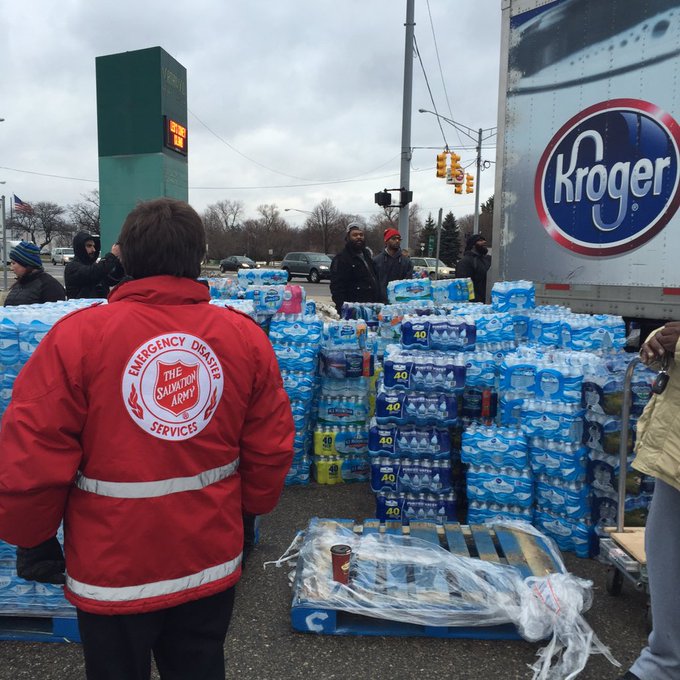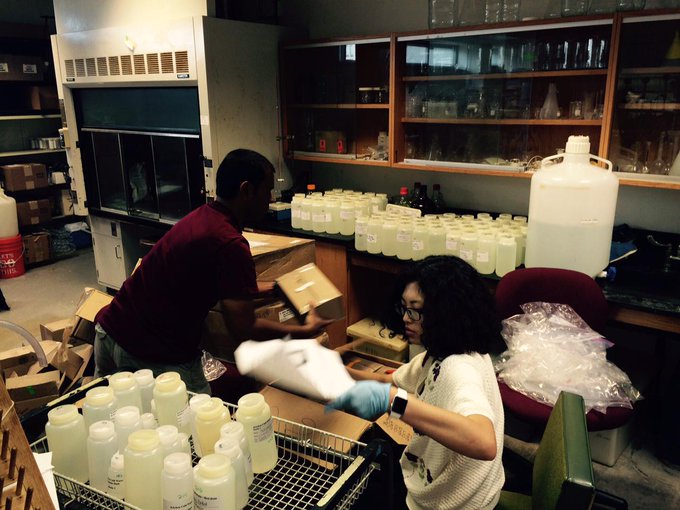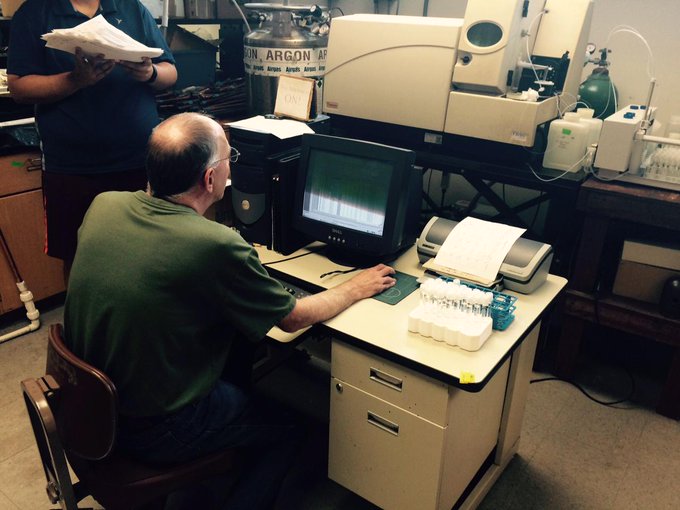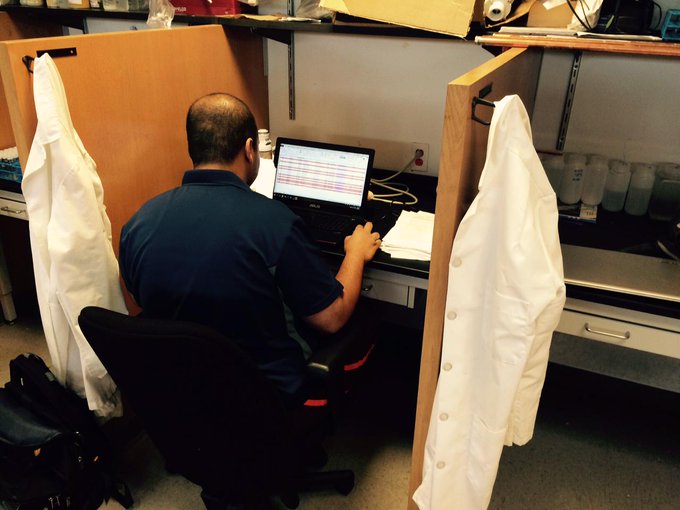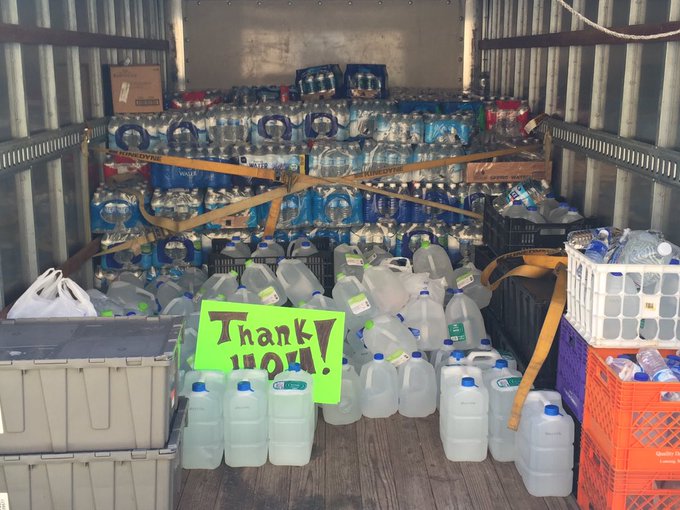For nearly two years, the tap water of Flint, Michigan has been contaminated with lead. According to a recent article by Mashable it's a crisis that has been on the national radar since early January, and one that isn’t losing relevance any time soon.
The quick version of the complicated crisis is that Flint’s water supply, which was pulled from the Flint River between April 2014 and October 2015 instead of through Detroit's water system as a way to save money, was transported to Flint residents through aging pipes corroded with lead. The lead heavily contaminated the city's drinking water, leading to a health crisis.
Local and state governments had long maintained that the water in Flint was safe to consume even with "noticeable discoloration, distinct smell and a bad taste". But now since drinking the water many residents have high levels of lead in their blood, leading to a multitude of health problems, especially in children and the elderly.
Although aid is on the ground and fundraising efforts are underway, the Flint Water Crisis is still very much a problem. People of all faiths are lending a hand to those in need. In the Mashable list below are some ways you can help the situation even if you aren't in the Michigan region.
Here in times of need! Donate water now until 1 pm at @Krogeron Woodward OR text WATER to 91999 #FlintWaterCrisis
Give and Donate Water
The Salvation Army is accepting donations to directly benefit those in Flint, providing water and filters to those in need. The organization is also paying delinquent water bills of residents, some of whom are still being charged for water deemed unsafe to use.
To donate directly, visit the Flint-specific page of the local Salvation Army site, or text WATER to 91999.

Federal State of Emergency in Flint
The Flint Child Health & Development Fund, created by the Community Foundation of Greater Flint, is collecting donations to support the ongoing health needs of children 6 years and younger who have been poisoned by the water supply. The fund will help provide health services to families in the area, many of which are low-income families and already at risk for not receiving adequate care.
Dr. Mona Hanna-Attisha of Hurley Medical Center, who has been at the forefront of advocacy in the wake of the water crisis, founded the fund, which will serve as a way to supplement aid by state and federal governments to help give low- or no-cost care.
To donate and learn more about the fund, visit here.
Well on our way to getting results for the 132 residents that just sent us their lead sampling kits.#Flintwater
Flint Water Study
The Flint Water Study, an independent research team at Virginia Tech, has been studying Flint’s water since September 2015. Part of the reason the harmful effects of Flint’s water supply came to public knowledge is credited to the team going public with its findings, which many argue pressured local governments to address the problem.
The study intends to empower those in Flint with information about their water supply. The group has analyzed hundreds of lead kits from households in Flint so far, reporting back to those households about what exactly has been in their individual water supply and what concerns they should have.
The Flint Water Study is being funded through a GoFundMe campaign.
Delivered 1 semi & 3 SUV full of water to our undocumented fam in#Flint
Help those who are still blocked from getting water
Even though relief efforts are on the ground, some people can't access them due to screening restrictions at distribution areas. Many distribution areas have been criticized for not allowing those without state driver licenses or social security numbers to access donated, clean water. This is especially a problem for undocumented populations who often lack this type of paperwork.
Though few people are directly addressing this at-risk population, one organization is doing exceptionally well. Action of Greater Lansing has an immigrant rights-specific task force, making them well-networked in the area. This is especially important when aiding undocumented communities, as many undocumented individuals are often scared to open their doors for people they do not know in fear of deportation.
